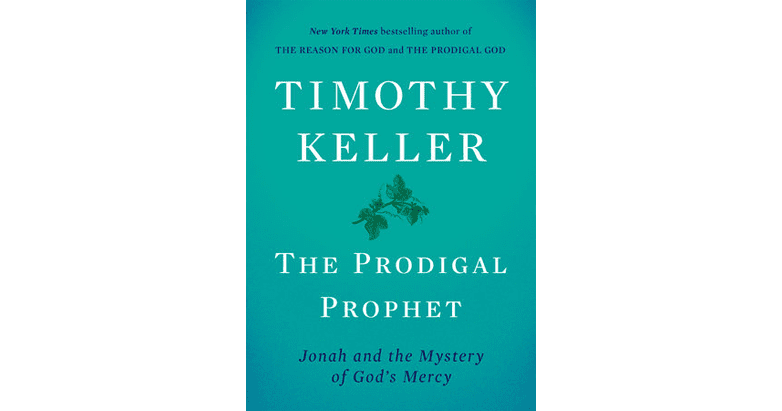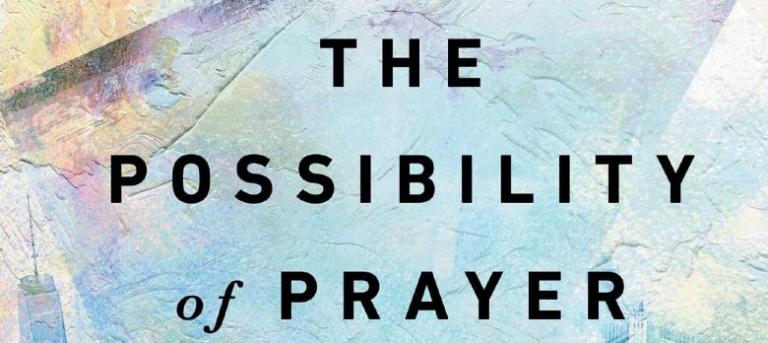
This week, Tim Keller released his latest book, The Prodigal Prophet. In it, he shows the radical grace of God that saved a city from destruction, frustrated a prophet, and changes our lives. In the first half of the book, he walks through the text of Jonah, showing the structure and meaning of the text. Then, he goes through the book a second time to help us understand how the message of Jonah should change our relationship to God’s word, God’s world, and God’s grace.
As Keller always does, he demonstrates how the message of Jonah gives us a greater understanding of the work of Jesus Christ. He does this both by delving into the heart of what Jonah did and showing it how it points Christ and by showing how all of Jonah’s failings point to our great need for Jesus. In addition, in his application he probes our hearts, causing us to see the depth of our sin and idolatry, but never losing sight of the grace of God which both forgives our sin and does the slow work of changing us at the core of who we are.
Here are the best quotes from The Prodigal Prophet.
“Despite the literary sophistication of the text, many modern readers still dismiss the work because the text tells us that Jonah was saved from the storm when swallowed by a “great fish” (Jonah 1:17). How you respond to this will depend on how you read the rest of the Bible. If you accept the existence of God and the resurrection of Christ (a far greater miracle), then there is nothing particularly difficult about reading Jonah literally…The fish is mentioned only in two brief verses and there are no descriptive details. It is reported more as a simple fact of what happened. So let’s not get distracted by the fish.” (3-4)
“Many of the students have noticed that in the first half Jonah plays “the prodigal son” of Jesus’s famous parable (Luke 15:11-24), who ran from his father. In the second half of the book, however, Jonah is like the “older brother” (Luke 15:25-32), who obeys God his father but berates him for his graciousness to repentant sinners.” (6-7)
“The Bible does not say that every difficulty is the result of sin–but it does teach that every sin will bring you into difficulty.” (24)
“The results of sin are often more like the physical response you have to a debilitating dose of radiation. You don’t suddenly feel pain the moment you are exposed. It isn’t like a bullet or sword tearing into you. You feel quite normal. Only later do you experience symptoms, but by then it is too late.” (26)
“Most often the storms of life come upon us not as the consequence of a particular sin but as the unavoidable consequence of living in a fallen, troubled world.” (27)
“As hard as it is to discern God’s loving and wise purposes behind many of our trials and difficulties, it would be even more hopeless to imagine that he has no control over them or that our sufferings are random and meaningless.” (30)
“We are also shown that the way to ‘love’ our neighbors is not merely through sentiment but through costly, sacrificial, practical action to meet material and economic needs.” (42)
“Jonah refused God’s mission largely because he did not want to extend mercy to pagans.” (59)
“Often the first step in coming to one’s senses spiritually is when we finally start thinking of somebody–anybody–other than ourselves.” (60)
“When Jesus speaks of ‘the sign of Jonah’ and calls himself ‘greater than Jonah’ (Matthew 12:41), he means that, as Jonah was sacrificed to save the sailors, so he would die to save us. Of course, the differences between Jonah and Jesus are many and profound. Jonah was cast out for his own sins, but that was not true of Jesus (Hebrews 4:15). Jonah only came near to death and went under the water, while Jesus actually died and came under the weight of our sin and punishment.” (63)
“When Jesus Christ first came into this world, bearing our humanity, and later went to the cross, bearing our sin, he became the greatest example and fulfillment of the pattern of true love–substitutionary sacrifice.” (64)
“A God who substitutes himself for us and suffers so that we may go free is a God you can trust. Jonah mistrusted the goodness of God, but he didn’t know about the cross. What is our excuse?” (66)
“With 20/20 hindsight, we can see that the most important lessons we have learned in life are the result of God’s severe mercies. They are events that were difficult or even excruciating at the time but later came to yield more good in our lives than we could have foreseen.” (70)
“No human heart will dare to believe in such free, costly grace unless it is the only hope.” (79)
“Salvation belongs to God alone, to no one else. If someone is saved, it is wholly God’s doing. It is not a matter of God saving you partly and you saving yourself partly. No. God saves us. We do not and cannot save ourselves. That’s the gospel.” (80)
“God has created the world so that cruelty, greed, and exploitation have natural, disintegrative consequences that are a manifestation of his anger toward evil.” (94)
“Some years ago I was preaching on this passage in Jonah, and after the sermon a listener expressed his displeasure. He did not feel I should have criticized Jonah. ‘Jonah was just a good patriot,’ he told me. ‘We should all be patriots.’ I answered him that while love of country and your people is a good thing, like any other love, it can become inordinate. If love for your country’s interests leads you to exploit people, or in this case, to root for an entire class of people to be spiritually lost, then you love your nation more than God. That is idolatry, by any definition.” (103)
“Jesus is the prophet Jonah should have been. Yet, of course, he is infinitely more than that. Jesus did not merely weep for us; he died for us. Jesus went outside the city, hoping to witness its condemnation, but Jesus went outside the city to die on a cross to accomplish its salvation.” (124)
“On the cross the justice of God exacted full punishment for sin and in the same moment provided a free salvation to all who believe.” (131)
“If you want to understand your own behavior, you must understand that all sin against God is grounded in a refusal to believe that God is more dedicated to our good, and more aware of what that is, than we are. We distrust God because we assume he is not truly for us, that if we give him complete control, we will be miserable.” (137)
“Sin always begins with the character assassination of God. We believe that God has put us in a world of delights but has determined that he will not give them to us if we obey him.” (138)
“Individual Christians can and should be involved politically, as a way of loving our neighbors.” (164)
“The gospel gives us the ability and the resources to love people who reject both our beliefs and us personally.” (169)
“If you have a new relationship with God, it must affect all your other relationships.” (196)
“Unless we see what it cost him to save us, we won’t be glad to obey and serve him, regardless of the cost to us.” (206)
“The only thing that releases us from the grip of idols is a heart grasp of the radical grace of God.” (218)
“In ourselves we are lost, flawed, and undeserving, but in Christ we are completely accepted and delighted in by the one in the universe we adore the most.” (220)
“The only way we could know these things is if Jonah told others. What kind of man would let the world see what a fool he was? Only someone who had become joyfully secure in God’s love. Only someone who believed that he was simultaneously sinful but completely accepted. In short, someone who has found in the gospel of grace the very power of God (Romans 1:16). If it can change Jonah, it can change anyone.” (228)
You can find more from “The Best Quotes” series here.
Related Posts:
“The Best Quotes from The Gospel“












